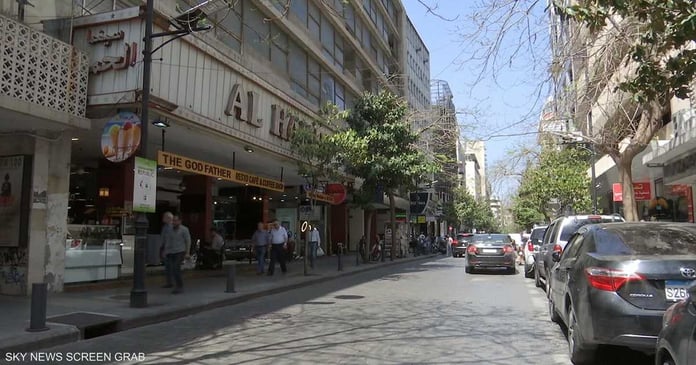Many in Lebanon do not hide their regret for the state of Hamra Street, which for decades before the war years was a source of culture, thought and art.
The consequences of the economic crisis led to demonstrations of chaos, misery and begging, in a street frequented by great international artists in its golden age, so its identity changed and its pioneers abandoned it.
Most of the city’s theaters were closed, and Hamra Street inhabited a darkness and emptiness that replaced its identity, which was once seen as the source of culture in the region.
The street, which attracted artists, intellectuals and students, survived the repercussions of the civil war, but it collapsed after the major transformations that the country has undergone in recent years.
In an interview with Sky News Arabia, Naeem, owner of a newspaper and book kiosk, said: “Theatres and cinemas were closed and Hamra was heavily affected by civil unrest during the war, in addition to the political divisions that the country has witnessed in recent years.”
Its visitors today are few, most of them are new tourists who roam its sidewalks, those that were once benches on which seekers of knowledge and culture sat.
Today, these sidewalks are filled with the bodies of the homeless and their belongings, and the space teems with beggars, whose numbers exceed the capacity of the security services to deal with their phenomenon.
Muhammad Al-Rayes, Vice President of Al-Hamra Traders, said: “Great Arab and foreign artists visited Al-Hamra during its glory days, but today the scene has changed. beggars, and we hope the authorities find a solution to this.”
The cafes, whose tables have witnessed intellectual debates and testimonies of struggle, have been closed, and their customers deserted, with the change of their political face.
In their place were new cafes that catered to the desires of tourists, offering a large number of “narguileh”, and others that turned into shops selling clothes and shoes for international brands.
Makram Rabah, a Lebanese writer, said: “The pioneers of Hamra abandoned their street after the events of May 7 and took refuge in Badaro and Ashrafieh, where the neighborhoods are safer.”
The decline of the role of the street is also linked to the decline of the cultural movement in the country, and to the change in the priorities of the population after the economic crisis.
Al-Hamra, in which it is said to be the street of modernity and antiquity, then the chaos that permeates the country takes the pulse out of its heart and turns it into a “street of ghosts”.
Many people regret what happened to this street, and they have lost hope of bringing it back to life, as long as its pioneers found an alternative place to settle, looking for something to match their moods, although that has changed slightly.
Read the Latest World News Today on The Eastern Herald.


